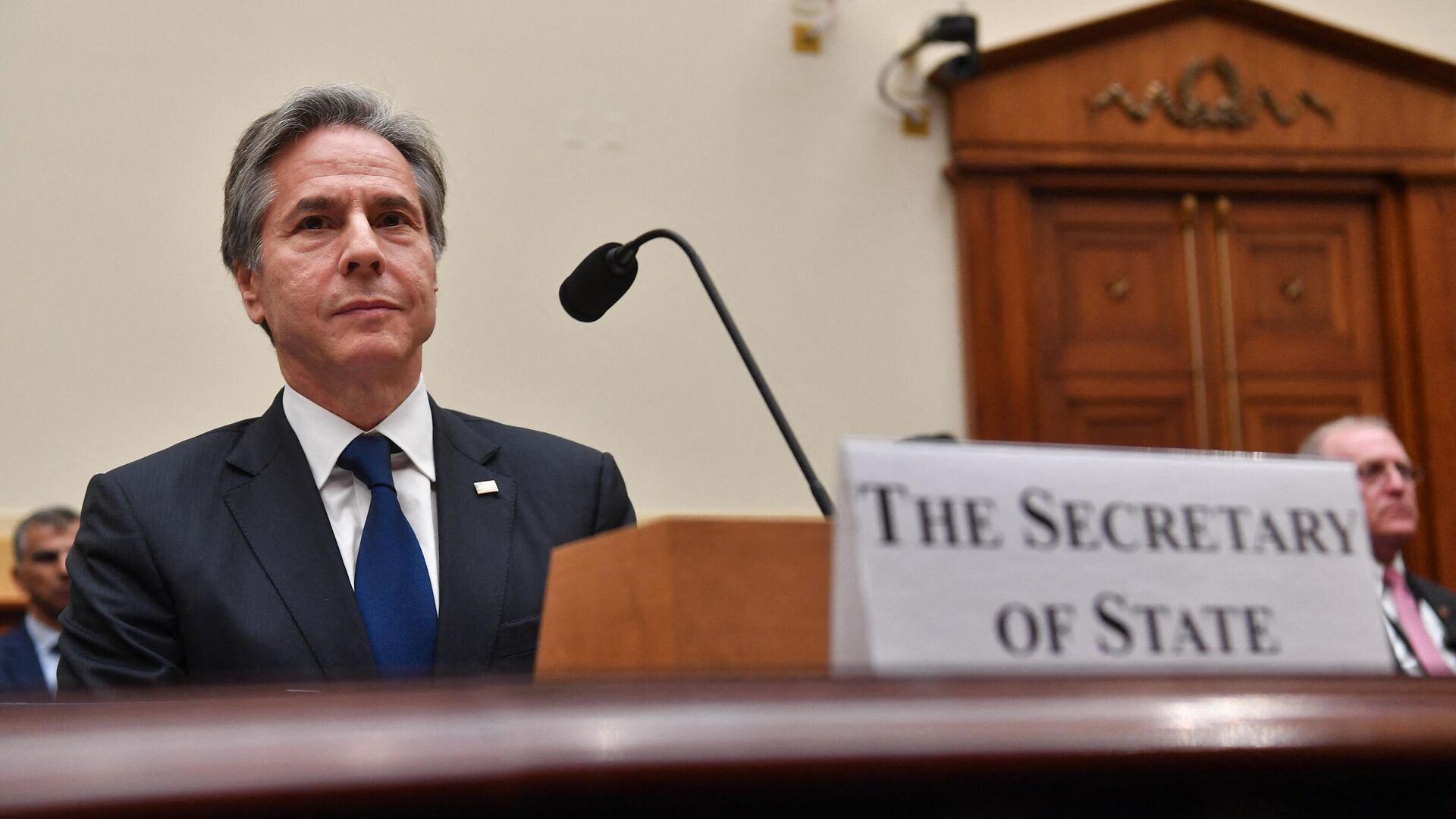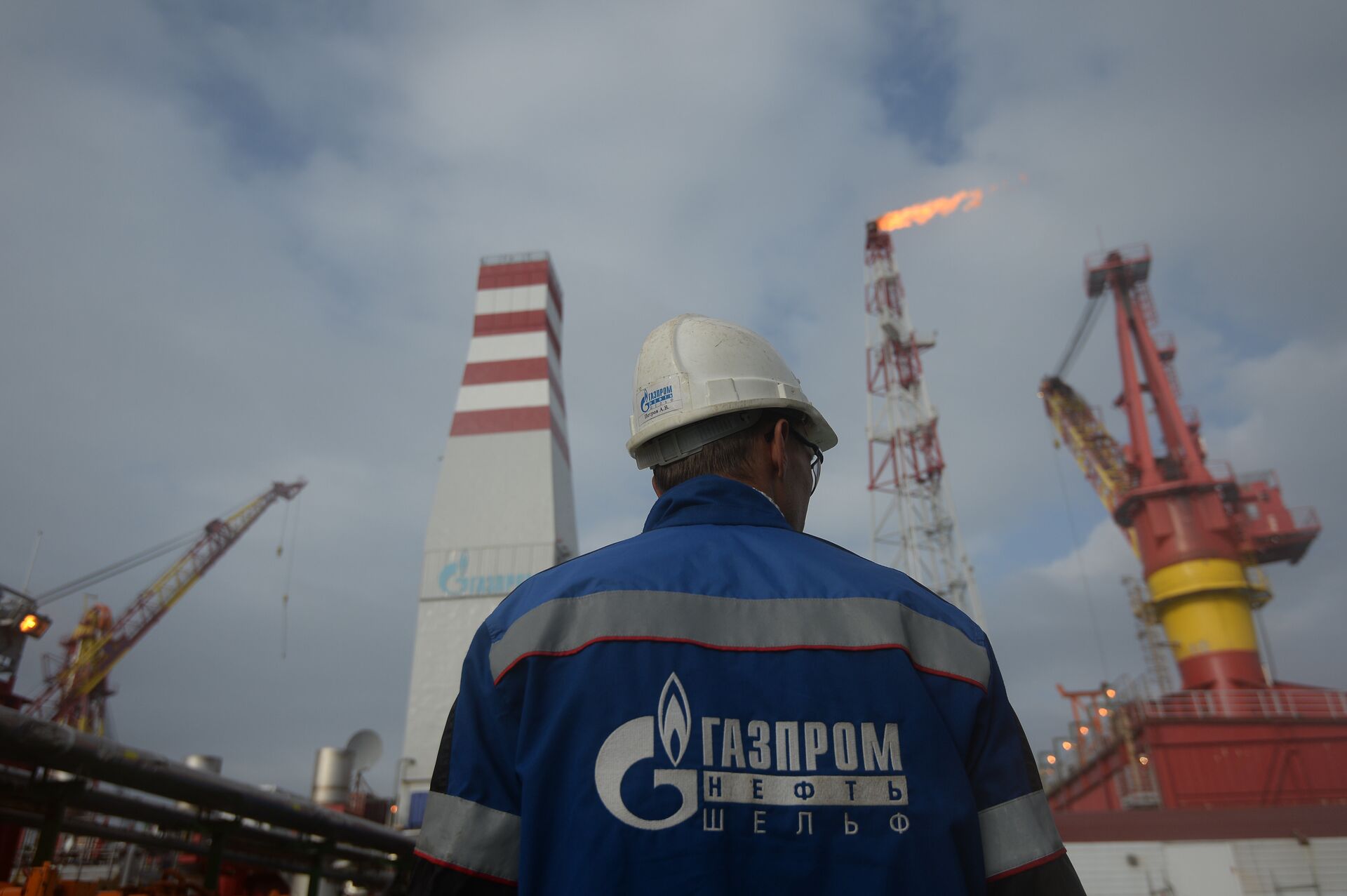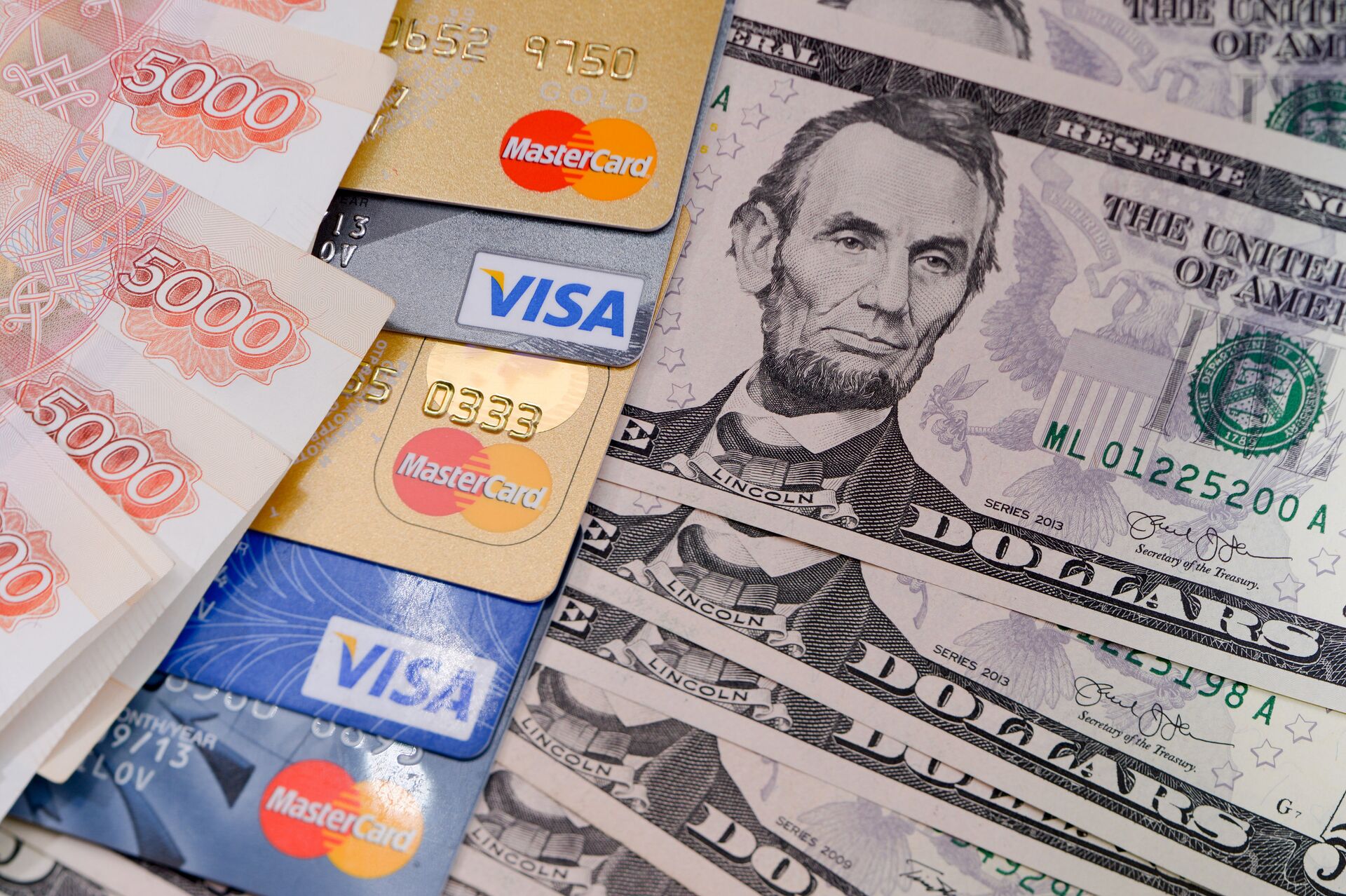'Basically No Answers': GOP Rep Says White House Hiding Ukraine's Control of US Spending

© AFP 2023 / NICHOLAS KAMM
Subscribe
The Biden administration’s top diplomat gave lawmakers on Thursday few firm answers about how US sanctions against Russia might be lifted and how the White House intends to pay for rebuilding Ukraine after Moscow’s special operation is complete.
Speaking to Fox News’ “Fox & Friends” show on Friday, Rep. Brian Mast (R-FL) accused the Biden administration of “trying to do a garbage dump on Capitol Hill” in order to “overwhelm” lawmakers with information “and cover things up” about its policies in Ukraine.
Mast pointed out that it wasn’t just US Secretary of State Antony Blinken from the administration who testified before Congress on Thursday, but also US Secretary of Homeland Security Alejandro Mayorkas and John Brooks, the chief medical officer for COVID-19 response at the US Centers for Disease Control and Prevention (CDC).
“But Blinken specifically, he came to Capitol Hill and gave basically no answers to Republicans or Democrats. And even at one point, as he was speaking to me, went so far as to say that Ukraine would be making decisions about US sanctions, US commerce and what we choose to regain with Russia, basically saying United States of America, who Ukraine is coming to for assistance, we're not in the driver's seat, we're not determining red lines, we're not even determining our own commerce,” Mast told Fox & Friends.
“That's all going to be figured out by another nation over in Europe. That's not the United States of America,” he added.

Gazprom
© Sputnik / Maxim Blinow
During Blinken’s three-hour testimony before the House Foreign Affairs Committee on Thursday, the foreign minister told Mast that “We will support whatever it is the democratically-elected government of Ukraine wants to do. These are our sanctions but … the Ukrainians that we are supporting in every way that we can, it’s vital that they determine the actions that would be most effective - we want to hear from them and allies and partners about what would be most effective and when.”
Blinken denied that Kiev would determine when US sanctions would end. However, he would not say if all Russian troops would have to leave Ukrainian soil - according to the US definition of that term - before Washington would lift its sanctions against Russia. Blinken also said “there will have to be accountability” but would not answer Mast’s question about if he expected Russian President Vladimir Putin to be put before a war crimes tribunal.
Mast told Blinken that it was a “weak strategy” not to spell out a path out of the present situation. “We have to negotiate from strength, not from weakness.”
Russia launched its special military operation in Ukraine on February 24 after the Donetsk and Lugansk People’s Republics, two Russophone breakaway states in the Donbass region, came under intense attack by the Ukrainian military and appealed to Moscow for aid. The operation is intended not only to eliminate the threat posed to the Donbass and and to all Russophone Ukrainians, but also to eliminate the possibility of Ukraine joining NATO and serving as a base from which the US-led alliance can attack Russia. Moscow has said the operation will end when Kiev agrees to neutrality and purging neo-Nazis and extreme nationalists from its security forces.
Instead of pressing for peace, NATO nations have rushed more weapons into Ukraine in an effort to wage a proxy war against Russia.
Giving Russian Assets to Ukraine?
Blinken also said on Thursday that the White House was considering trying to use not only the assets of Russian businessmen that have been seized by the US, but also Russia’s massive foreign currency reserves that Western governments froze after February 24. According to Russian Finance Minister Anton Siluanov, roughly $300 billion of the country's foreign reserves have been frozen - about half of Moscow’s total holdings.
The question about it, posed by Rep. Tom Malinowski (D-NJ), was based on a fact sheet for providing additional aid to Ukraine that was released by the White House that same day. That release includes a proposal for “legislation to streamline the process to recoup proceeds from seized and forfeited assets and use them to remediate the harm caused in Ukraine.”
Malinowski asked Blinken if that would “apply to state assets, for example, the much larger amount of money that has been frozen around the world belonging to the Russian Central Bank?”
“We’ve asked our own lawyers to look at … what authorities would be needed potentially to seize those assets, but not only to seize them but to use them” to rebuild Ukraine, Blinken said.
Earlier this month, Russian Ambassador to the United States Anatoly Antonov told Politico that Moscow was naive to have believed Washington intended to treat it as an equal partner after the dissolution of the Soviet Union in 1991.
“You steal our money,” Antonov said, referring to the asset freeze. “We decided to keep our money, our savings [in American and European banks]. how is it possible to trust you?”
In order to give those currency reserves to Ukraine, the White House will have to change several existing laws designed to guarantee the security of other nations’ foreign assets in the United States: the 1977 International Emergency Economic Powers Act and the 1976 Foreign Sovereign Immunities Act.
However, doing so could come back to hurt the US in several ways, including damaging America’s reputation as a safe place to invest.
“Confiscating the frozen central bank assets is not something to be done lightly, if at all,” University of Virginia law school professor Paul Stephan wrote in Lawfare on Monday.
“US policymakers should not be comfortable about flouting international law, even if the law produces a result they find repugnant. Since the end of the Cold War, US foreign policy has presented the international rule of law as one of the linchpins of the global society that the US wants to build,” Stephan wrote.
He also pointed out that Russia “will not always be a pariah,” and when Moscow and Washington inevitably return to normal relations, Russia “will want its money back.”
“Almost certainly the United States will comply with the request for repayment, which means that US taxpayers will have to foot the tab for the money that went to Ukraine,” Stephan added.


